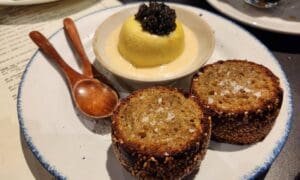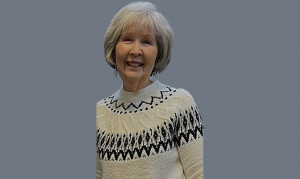There is a country store that sets in the middle of hundreds of acres of farm land embedded with hardwoods and pines that have grown, untended, for a century or two. In this little rural community live people who mostly work with their hands, raise much of what they eat and pray for any extra help they can get from any place that they can get it.
It seems to be with some kind of regularity that we, these days, drive past it on our way to somewhere else. People always seem to be driving past it, going somewhere besides there. Perhaps for that reason among others, it is long abandoned. Its gray painted cinder blocks are dusty with neglect, a screen door dangles at an angle, barely hanging on, the front door, shielded by a small porch and three columns as in the style of those old stores, is boarded up while weeds spring up through cracked asphalt.
Though Tink never knew it when it bustled with commerce, when old men in worn overalls stopped by to pick up a jar of snuff, when a can of baking soda was needed for a last minute cake, and when kids like me poured a pack of peanuts into an ice cold bottle of Coca-Cola pulled from the glass-topped cooler where the drinks were stacked on top of each other, he taps his horn to pay both homage and to say, “Hey, y’all.”
I always smile. For I remember when. I can see my cousins and me clattering, barefooted, into the store, armed with handfuls of change that our parents had dropped coin by coin into our hands. The floor was old and wooden, cleaned and darkened with oil. The small room was lighted only from the sunlight that streamed in with varying amounts, depending on the amount of sunshine or clouds, from the six windows. The air was sweetened with the smell of candy with the spice of tobacco cutting boldly through the sugary smell. The woman, weary and gray, rarely smiled when she took our money. I think we were too boisterous for her liking.
That store represents more than cold Cokes, salty peanuts and Baby Ruth candy bars to me. Whenever I see it, I think back to the days when everyone I loved was still alive and how it was the imagination of children that entertained us all.
We built playhouses that were outlined with rocks we gathered then we settled into our “houses” and made mud pies and had teas with invisibles cups and saucers. One of my cousins had seen on television that proper people stuck their pinkie fingers out whenever holding a teacup so we, poor country kids, pretended to be rich and pompous.
When we tired of that, we sauntered to the barn, sometimes stopping to swing in the old black tire that hung from a tree or to chase the chickens that pecked at the dirt. We’d climb the old ladder to the barn loft, plop down in a circle in the midst of the hay-strewn floor then lean in close as we each took turns trying to tell a bigger ghost story than the last.
At the end of those Sunday afternoons, we’d pile into the backseat of our family sedans, after saying goodbye to grandparents, aunts, uncles and cousins. Before Daddy was three miles down the road, I pushed my good Sunday clothes to the side, laid down, tucked my red dirt-covered feet under me and slept soundly until we arrived home 45 minutes later.
It was dark and late of hour when we passed the little store the other night. Tink tapped his horn and this time I did more than smile. I blew a kiss toward it, then settled back in my seat to think back on those happy days.
It was better than a cold Coke with peanuts.
[Ronda Rich is the best-selling author of “What Southern Women Know (That Every Woman Should).” Visit www.rondarich.com to sign up for her free weekly newsletter.]












Leave a Comment
You must be logged in to post a comment.